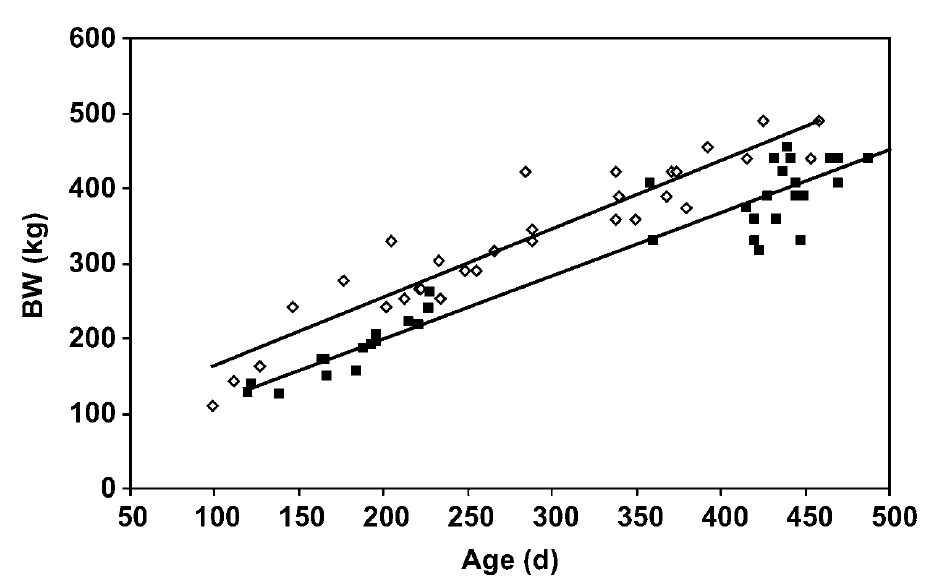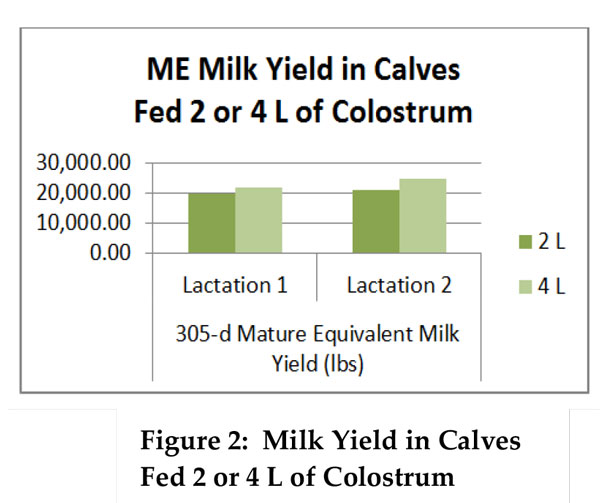Upon birth, calves have little to no circulating immunoglobulins (also known as antibodies). Calves acquire immunoglobulins through the ingestion of colostrum during the first 24 hours of life with the greatest rate of absorption occurring in the first 6 – 12 hours. For a Holstein calf, recommendations indicate that they should consume, at minimum, 1 gallon of good quality colostrum.
Colostrum quality is measured by the amount of immunoglobulin G (IgG) present. At least 50 g/L of IgG is considered good quality. Colostrum can be tested with a colostrometer, which uses specific gravity to estimate IgG concentration, or a refractometer which uses Brix values that can be related to IgG concentration. To properly estimate IgG content with a colostrometer, the colostrum first must reach room temperature. If tested when too warm or cold, the reading will be false and may lead to errors. Refractometers are more accurate and can be used on colostrum at any temperature.
Colostrum not only needs to have adequate IgG, but must also be free from bacteria. Colostrum should contain less than 100,000 cfu/ml of bacteria. Because the calf’s gut is immature, it has the ability to absorb IgG, but this also means it can absorb bacteria and other pathogens freely. Bacteria in colostrum can either be derived from inside the udder (mastitis infections) or from contamination during harvesting. Colostrum can be pasteurized, but if done improperly, large amounts of IgG will be destroyed with an end product that is the consistency of pudding. Also, remember that diseases like Johne’s and Leukosis are transmitted through colostrum. Colostrum from cows that are positive for either of these diseases should be discarded and the calf should be provided colostrum from another cow or given colostrum replacer. Ensuring adequate intake of clean, quality colostrum is critical for future success.
Passive Transfer
Immunoglobulins are passively absorbed in small intestine of the newborn calf. The USDA National Animal Health Monitoring Service designates success of passive transfer as 10 g/L of blood serum IgG at 24 hours of age. Calves who do not attain passive transfer suffer from:
- Decreased average daily gain (see figure 1)
- Increased incidence of disease
- Greater mortality rates
- Less milk produced in their first and second lactations (-2.2 lbs/day; see figure 2)
Essentially, feeding quality colostrum at a rate high enough to achieve passive transfer is an easy way to increase future milk production. However, it is estimated that around 60% of the colostrum produced on US dairy farms does NOT meet minimum quality guidelines. Colostrum quality not only varies from farm to farm, but within the farm as well.
The Quality Isn’t There, Now What?
Lucky for us, colostrum alternatives have been developed. Colostrum replacers and supplements are both available, but remember, they are NOT the same thing. Supplements provide a low level of IgG (40 – 60 g) and are designed to be fed along with maternal colostrum. Replacers are designed to provide the total amount of IgG (100 – 150 g) needed along with other essential nutrients. The benefits of using a colostrum replacer are that it is a known amount of IgG, these products are tested for disease and pasteurized, and can easily be reconstituted and fed within minutes.

When choosing a supplement or replacer, it is critical to look at what the product is derived from (colostrum-based or serum-based). Serum-based replacers have their IgG derived from slaughterhouse bovine blood. IgG from this source is poorly absorbed in the gut of the calf; therefore, these products should be avoided. Supplements derived from blood can actually DECREASE IgG absorption in the calf. Colostrum-based products are just that, whole colostrum that is pasteurized, pooled, and dehydrated to create a final product. These products are highly effective and can be used with confidence. They are typically much more expensive than their blood-based counterparts, but should be considered an investment into the long term success of your herd.

Colostrum

